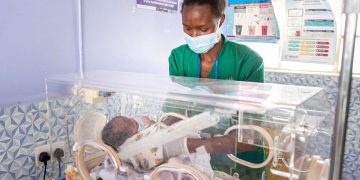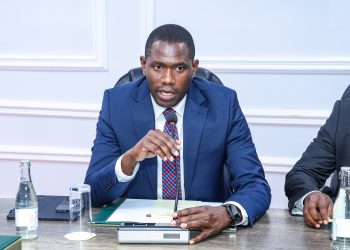On Sunday at the break of dawn, Ulinzi Sports Grounds along Lang’ata Road in Nairobi came alive with the pounding of thousands of feet, their rhythm echoing a collective cry: no mother should die while giving life.
More than 6,000 Kenyans from health workers and students to mothers, fathers, and children joined the second edition of the End Postpartum Haemorrhage (PPH) Run, a campaign that has now grown into a continental movement.
Organised by the University of Nairobi in partnership with the Kenya Obstetrical and Gynaecological Society (KOGS) and the Midwives Association of Kenya (MAK), the End PPH Run is more than just a race, but a lifeline, designed to spotlight a silent killer that claims nearly half of all maternal deaths in Kenya: postpartum haemorrhage, or excessive bleeding after childbirth.
This year’s run did not just raise awareness it also tackled one of the biggest gaps in maternal care: blood shortages. Alongside awareness the race, organizers launched a blood donation drive and “a roaming blood bank initiative,” a mobile donation program where participants get to know their blood groups and may receive alerts whenever urgent donations are needed.
According to Dr. Patrick Amoth, Kenya’s Director-General for Health,Kenya needs about 500,000 units of blood annually but collects less than half of that.
He said that managing PPH requires immediate treatment and reliable access to blood, and without it, lives can be lost.
Globally, PPH claims 70,000 women every year, 90 percent of them in low-resource settings. In Kenya alone, it accounts for nearly 3,000 maternal deaths annually.
“PPH is one of the five leading killers of women during childbirth,” said Dr. Simon Kigondu, president of the Kenya Medical Association. “Mothers are not dying because we lack medicines or knowledge, but because we have not come together as a society to ensure no woman dies giving life.”
This year’s ‘END PPH RUN’ extended beyond Nairobi, with simultaneous runs in Mombasa, Kakamega, Homabay, Machakos, and even across the border in Uganda and Rwanda demonstrating the scale and urgency of the cause.
Professor Moses Obimbo, Profesor of anatomy at the University of Nairobi, obstetrician and gynaecologist spearheading the initiative, stressed the importance of community action.
“We cannot continue to accept a reality where a mother dies every two minutes from childbirth-related causes, especially when simple, affordable, and proven interventions exist.”
Pilot programs in Makueni County highlight what is possible when the right tools reach the right hands.
Michael Muthamia Jhpiego, Project director for AMPLI PPH said that adoption of lifesaving innovations can drastically reduce severe bleeding.
He said that In Makueni County for example maternal deaths due to PPH dropped from 12 in 2022 to zero in both 2023 and 2024, thanks to health worker training and the roll-out of heat-stable carbetocin, a drug proven to prevent bleeding after childbirth and now available at a subsidized cost.
Yet, progress remains uneven. Kenya’s human resource shortages are dire, with one doctor often serving more than 1,000 patients far below the World Health Organization’s recommendation of 44 doctors per 1,000 people.
Dr Amoth admitted that the country is off track in reducing maternal deaths. “Our maternal mortality ratio is 355 per 100,000 live births. The target for 2030 is 70 per 100,000,” he said. “This is why advocacy and partnerships like these are vital.”
Earlier this year, the Gates Foundation pledged $2.5 billion toward neglected women’s health conditions, including PPH a historic investment that African health leaders say must translate into practical action.
“Maternal health is a matter of equity and justice,” said Prof. Obimbo. “The End PPH Run is a call to governments, donors, and communities to make safe motherhood a priority. We finally have the opportunity to ensure no woman dies while giving life.”
For campaigners on the ground, however, the struggle is not just about statistics but about dignity. “Women deserve dignity after giving birth,” said. “If we cannot guarantee that, then we have failed as a country.”














